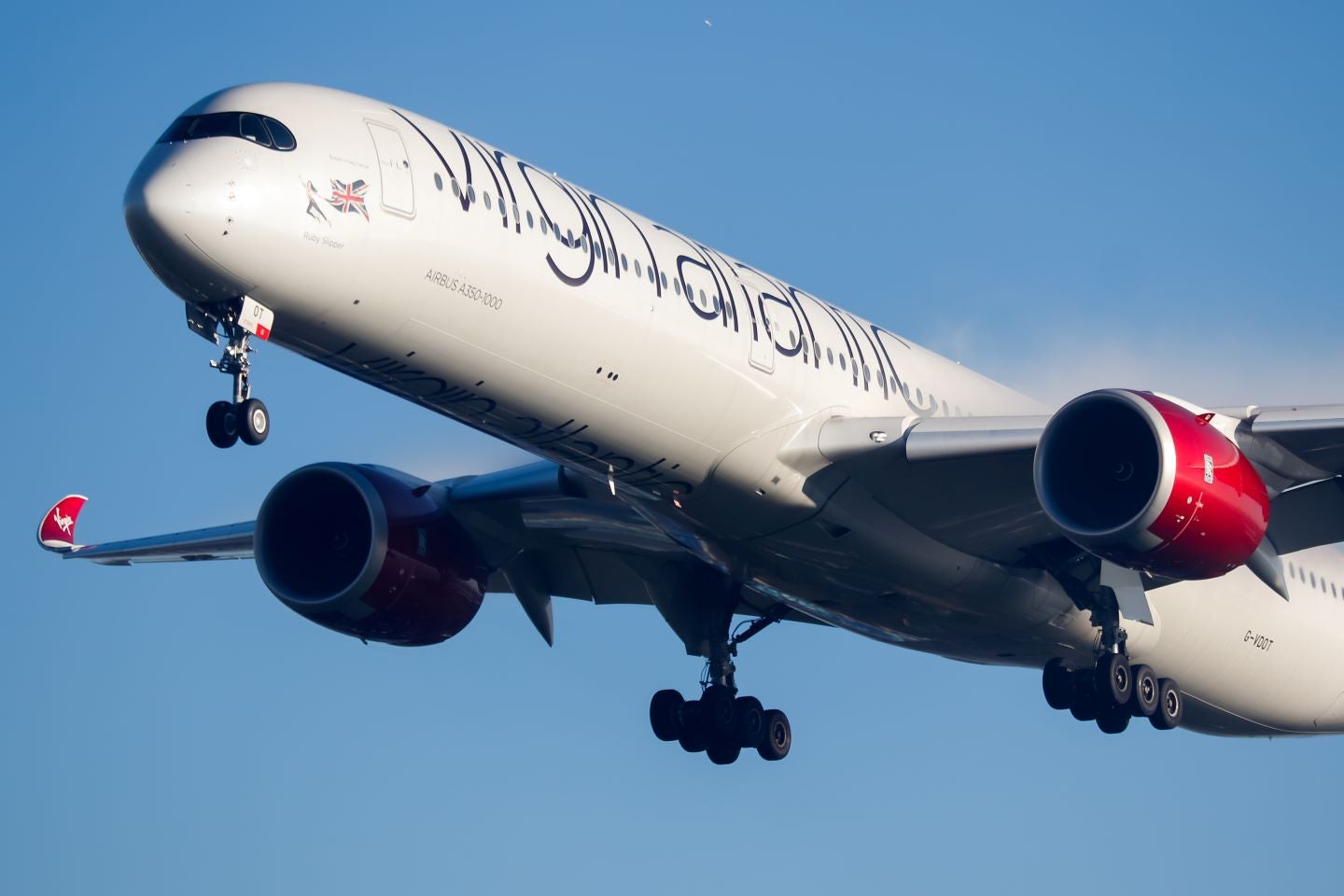
British airline Virgin Atlantic and Rolls-Royce have confirmed the successful ground test of a sustainable aviation fuel (SAF) mix for the Rolls-Royce Trent 1000 engines to be used in the first transatlantic flight powered by SAF.
The SAF transatlantic flight, which is partially funded by the UK government, is set to take the skies from London Heathrow to New York JFK in November 2023.

Discover B2B Marketing That Performs
Combine business intelligence and editorial excellence to reach engaged professionals across 36 leading media platforms.
In addition to the test, fuel providers Air BP and Virent said they will supply the 60t of SAF to be used in the flight test.
The flight, if successful, will advance Virgin Atlantic’s route to net zero by 2050, proving SAF’s potential as a 100% drop-in replacement for fossil fuels.
Virgin Atlantic CEO Shai Weiss highlighted the important landmark towards aviation’s decarbonisation goals: “The 100% SAF transatlantic flight will be a historic moment in aviation’s roadmap to decarbonisation.
“Alongside fleet transformation, SAF is the most readily available way for our industry to decarbonise, but currently, there’s not enough supply and without it and the radical collaboration required to produce it, we can’t meet our targets.

US Tariffs are shifting - will you react or anticipate?
Don’t let policy changes catch you off guard. Stay proactive with real-time data and expert analysis.
By GlobalData“We need UK government support to create a UK SAF industry to allow for every single flight out of the UK to operate with 100% SAF – if we make it, we can fly it.”
SAF is a carbon reduction solution that is available for both aircraft and helicopters. The ‘drop in’ fuel is seen as a key driver for reaching the aviation industry’s decarbonisation targets.
According to Airbus, SAF has part-fueled more than 450,000 commercial flights. But global SAF output represents 0.03% of aviation fuel use.
Virgin said it expects the study to show additional CO₂ savings from operating efficiency, contribute to research and development into the non-CO₂ consequences of flying, and allow end-to-end flight lifecycle analysis.
The Trent engine, which has been in service for over 25 years, is used on planes such as the Airbus A330, A340, A350 and A380, as well as the Boeing 787 Dreamliner.





